What is the impact of retirement or leaving work on the health of people living with chronic illness? Carenity members share their thoughts!
Published Feb 26, 2022 • By Candice Salomé
For those who have had long and demanding careers, the transition to retirement is often accompanied by a feeling of freedom and well-being. But is this also the case for those who live with chronic illness?
What impact does the transition from working life to retirement have on Carenity members' health?
We conducted a survey in the United States, the United Kingdom, and France to gather the opinions and feelings of Carenity members!
Discover what they had to say on the matter below!

519 members participated in our survey in the US, the UK, and France
We conducted a survey from 5 February 2022 to 20 February 2022 involving 519 Carenity members in the US, the UK, and France.
Respondent profile
26% of the members surveyed have been retired for 1 to 3 years, but the majority left the working world between 7 and 10 years ago (32%).
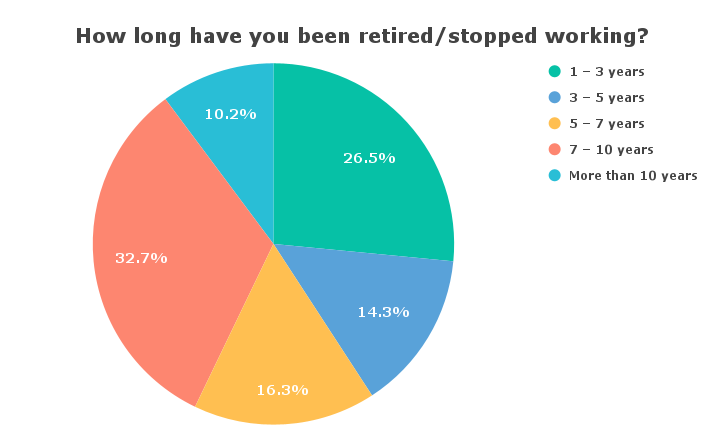
The majority of members who responded to the survey have type 2 diabetes (11%), multiple sclerosis (7%), fibromyalgia (7%) and osteoarthritis (7%). 79% of respondents are affected by at least 2 conditions.
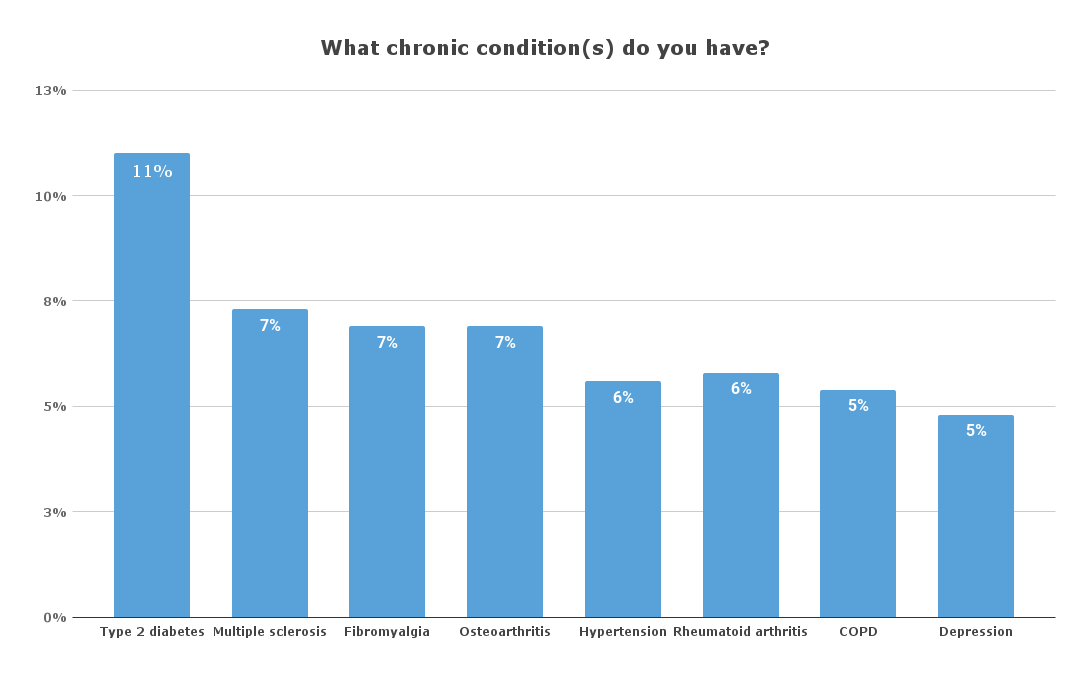
After retiring, members feel less active than before
Carenity members who responded to the survey feel they are less active overall than when they were working (24%) but take the time to rest (20%). Some feel isolated (15%) while others have found new activities (13%).
The feeling of newfound freedom is shared by 9% of Carenity members.
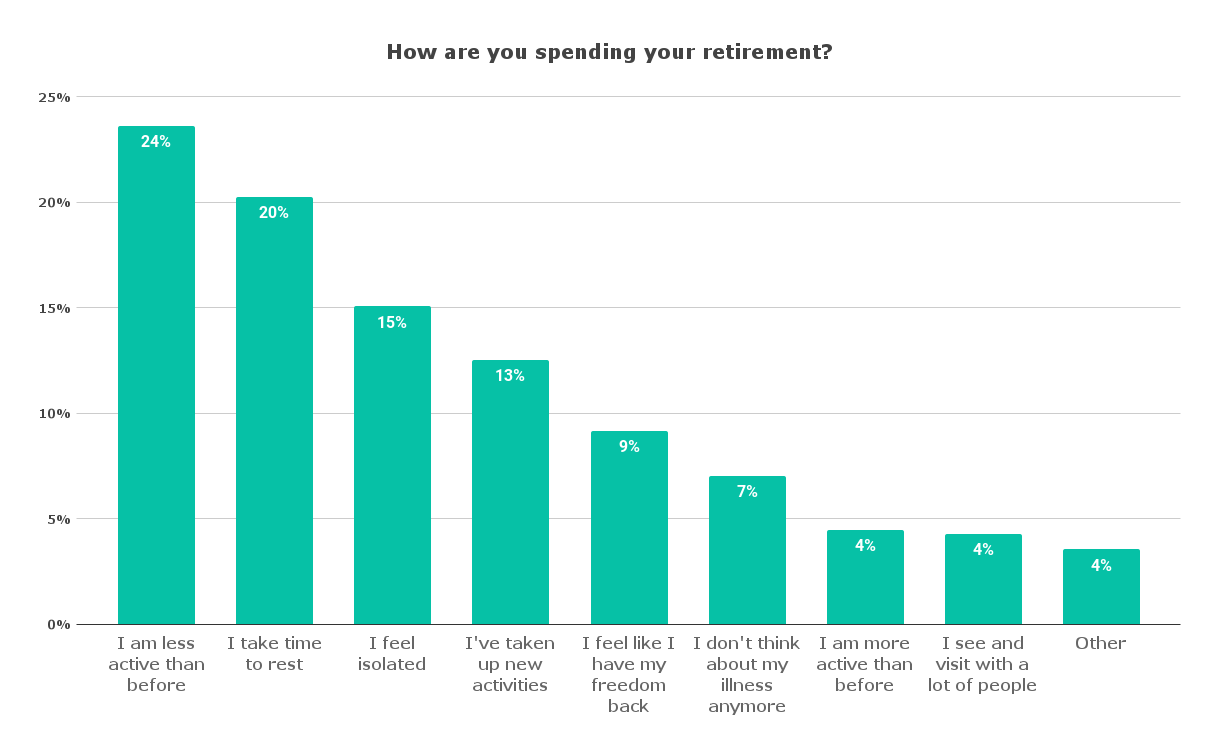
Mixed responses on members' state of health in retirement
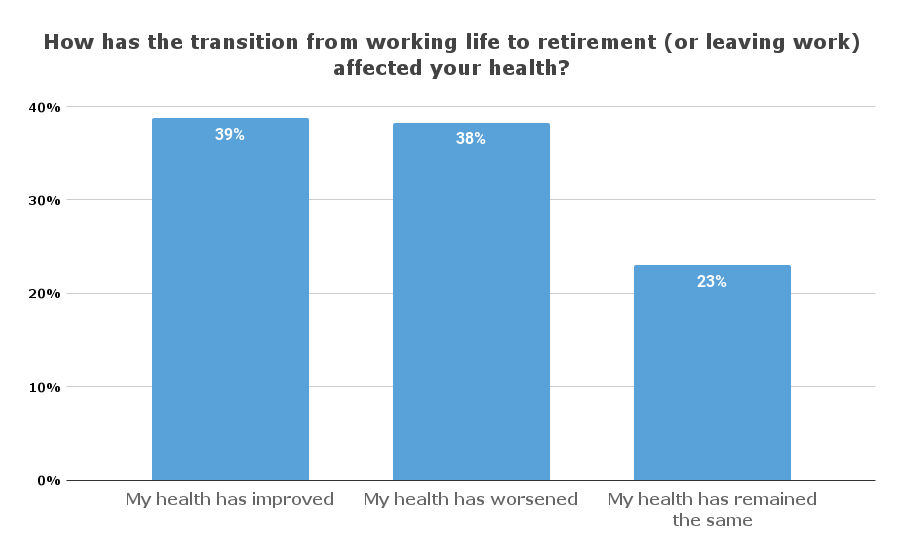
According to the responses given by the interviewed members, their health either improved (39%) or worsened (38%). Only 23% of members saw their health remain the same.
Among members who saw their health improve, they cited the following reasons:
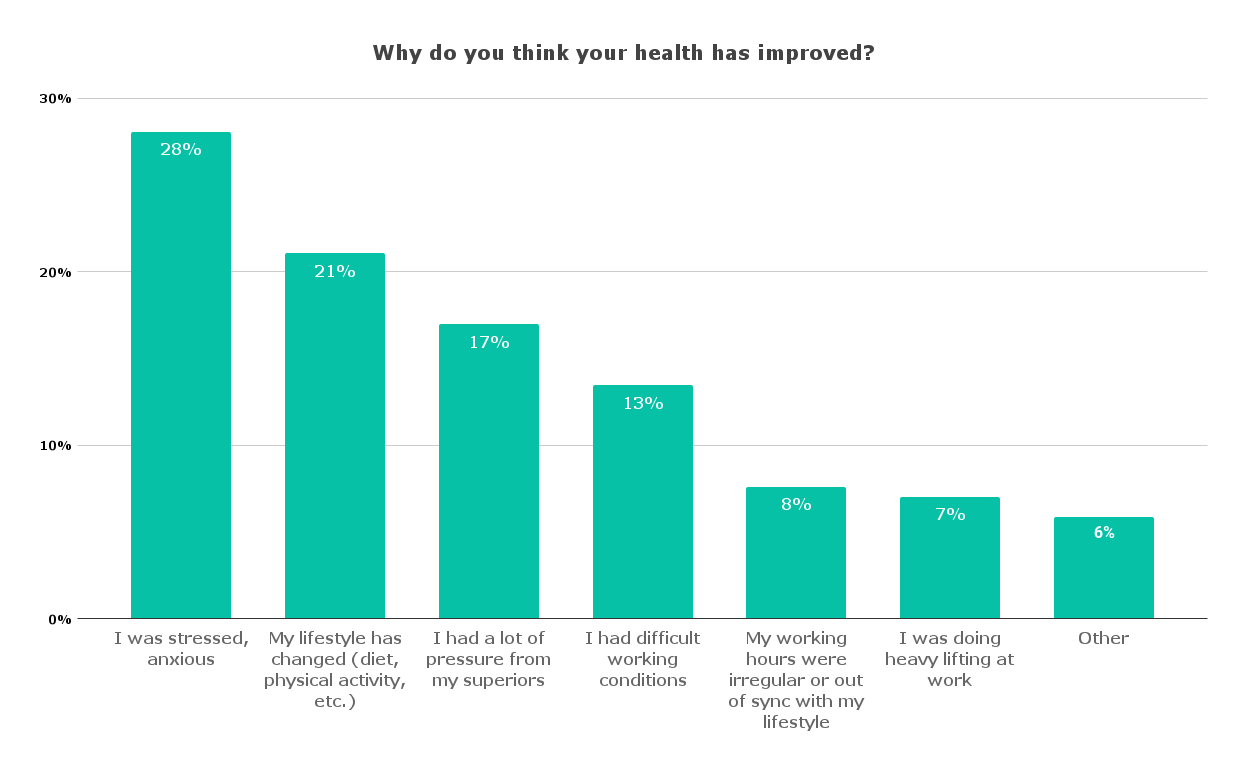
Stress (28%) and pressure from their superiors (17%) were significant factors in the deterioration of the Carenity members' health. Therefore, after stopping work, many saw an improvement in their health. For 21%, the change in lifestyle after retirement helped them feel better.
Conversely, some members saw their health deteriorate after retirement. The main explanations given were lack of activity (24%), change of lifestyle (21%), isolation (18%) and depression or anxiety due to lack of social life since retirement (18%).
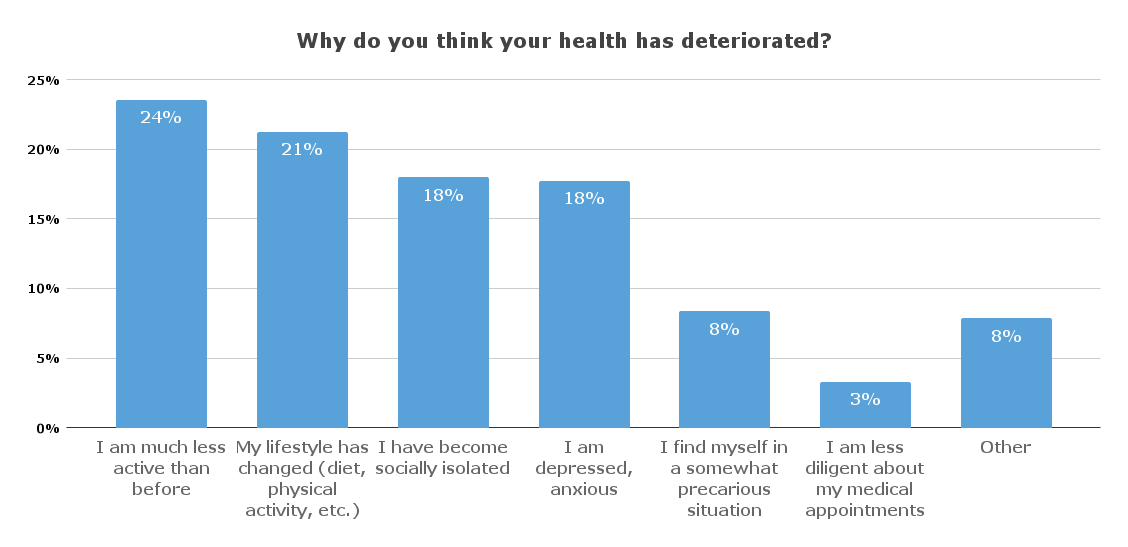
How to enjoy the transition to retirement? Advice from experts!
Retirement or leaving work can provoke a profound change in identity. For many, it symbolizes turning the page on many years of one's life. Personal time, social context, and relationships with others (colleagues, relatives, etc.) also tend to change.
It is therefore important to prepare oneself and to actively manage this major lifestyle change.
Here are a few tips to help you enjoy your retirement with peace of mind:
Adapt your lifestyle!
You will have more time to take care of yourself! It's therefore essential to make the most of your days. You can start with regular physical activity, whether it's walking, swimming, or some other gentle exercise on a daily basis. The key is not to rush your body by trying activities that you can continue over time.
Also, set goals for yourself! For example, start by trying to take 10,000 steps a day!
Retirement is also an opportunity to take a look at your eating habits. Perhaps you were often eating on the run? In front of your computer? Now you may have time to spend in the kitchen! A varied, balanced, and seasonal diet remains the key to good overall health.
Stay mentally active!
Stimulating both your mental and physical abilities is the secret to a successful retirement.
You can stimulate your memory and cognitive abilities by reading, going to the theatre or cinema, playing bridge, sudoku, scrabble and many other puzzle games! It's up to you to choose what you enjoy the most! These activities combine intellectual stimulation and social interaction.
Find meaning in your life!
Work may have led you to opportunities that don't make much sense to you now. But this new part of your life can lead you to freely re-examine what really gives you purpose.
This introspective reflection can lead you to devote time to others, for example, through voluntary work. Why not join an organization with similar values to your own? This will help to give real meaning to your new life.
Rethink your relationships!
Whether as a couple or with your friends, retirement can be a good time to plan new shared projects! What about a trip, a DIY, or a sporting activity for two or more?
You should also ask yourself how you will manage your relationships with your children or grandchildren. How much time can you give them?
Also take stock of your friendships and surround yourself with positive people with whom you can share authentic moments.
Retirement can be a big adjustment, but it is also a time of life that offers many new opportunities. It's important to prepare for it as well as possible so that you don't feel disoriented by all this new "free time".
Take care!
Carenity survey conducted from 5 February to 20 February 2022 in France, the UK and the US.
Comments
You will also like

Spoon theory: What is it and how can it help people living with chronic illness?
Apr 13, 2022 • 7 comments

What is the psychological impact of chronic pain? Carenity members share their experience!
May 27, 2021 • 8 comments

 Facebook
Facebook Twitter
Twitter
